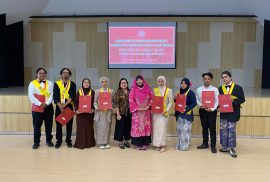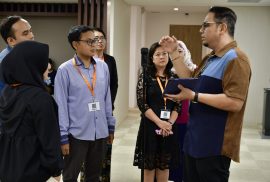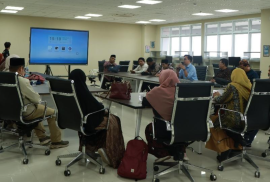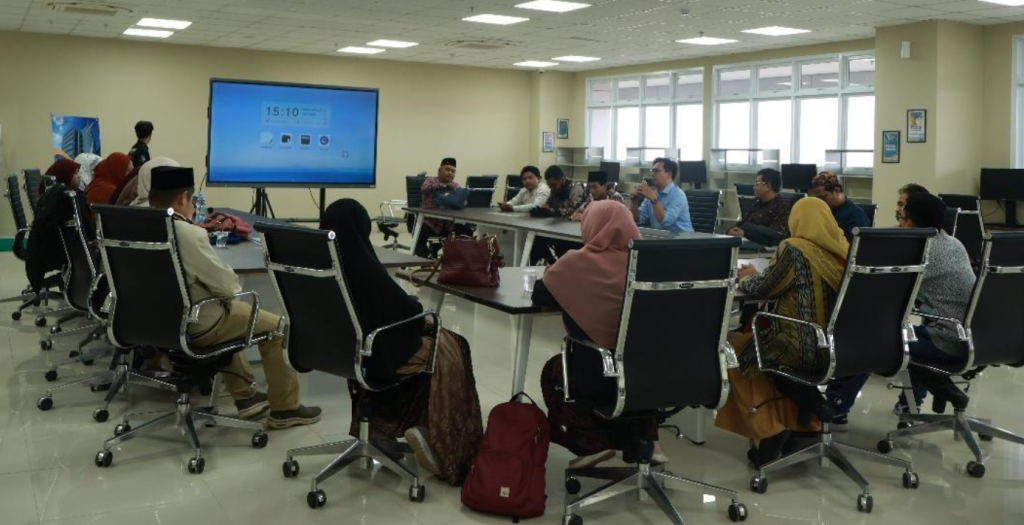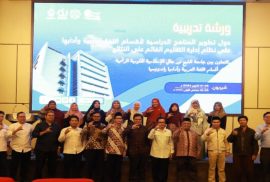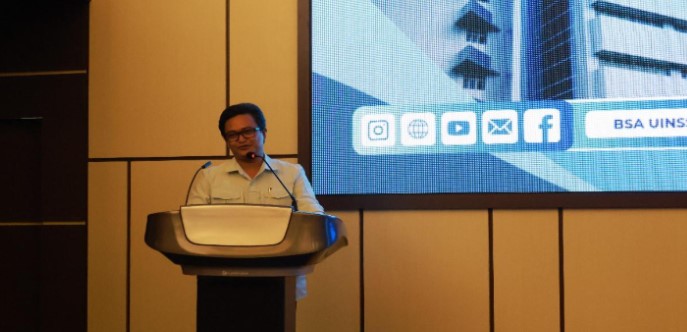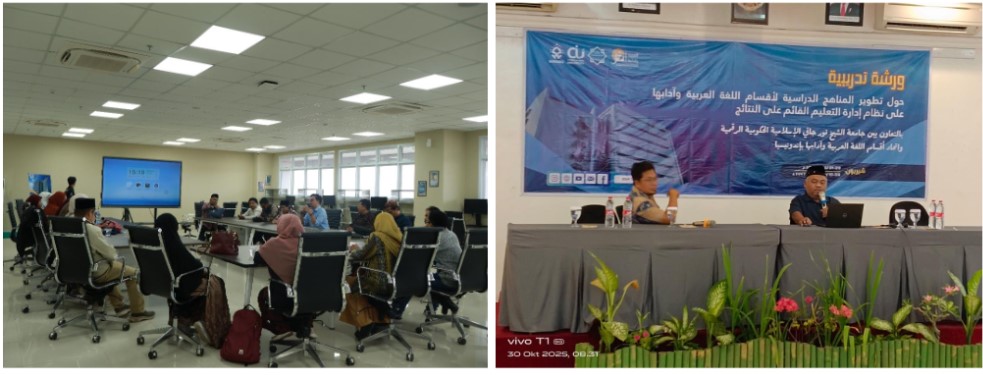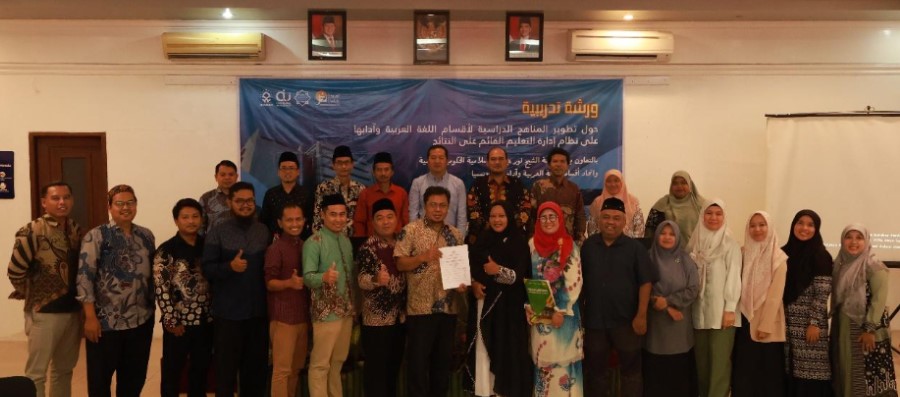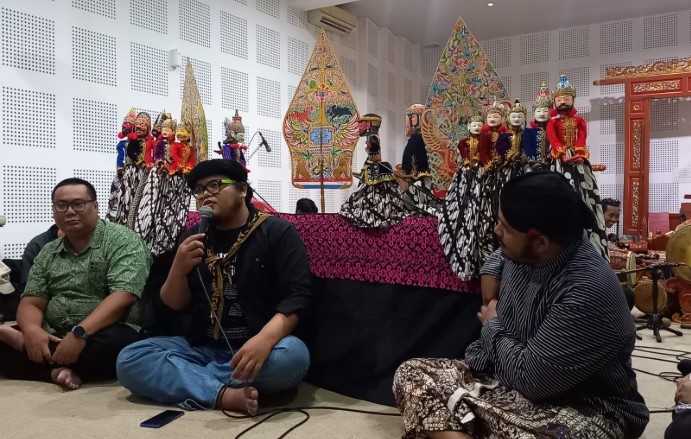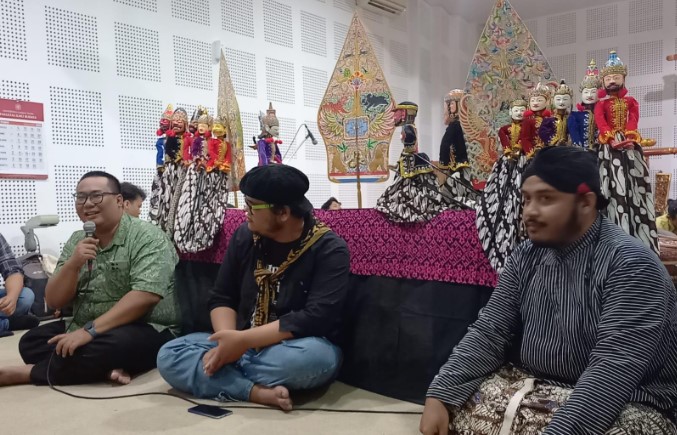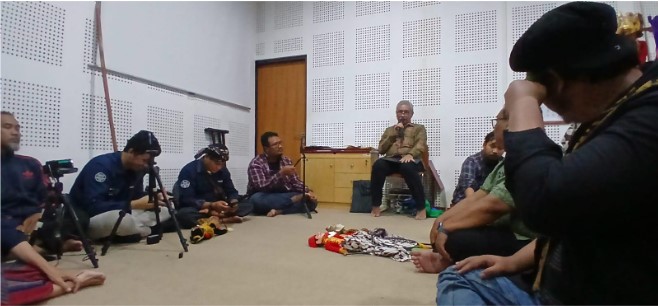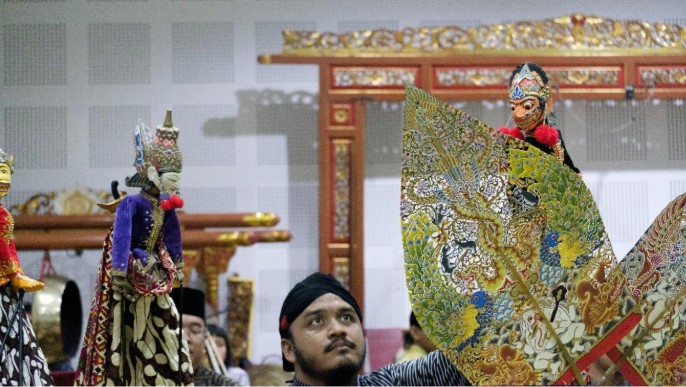The Master’s Program in Literature, Faculty of Cultural Sciences (FIB), Universitas Gadjah Mada (UGM), recorded a notable academic achievement at the Postgraduate Graduation Ceremony for Period II of the 2025/2026 Academic Year, held in Yogyakarta on Tuesday (January 21, 2026). One of its graduates, Iftinan Rose Putri Safana, earned the distinction of fastest graduate, completing her studies in 1 year, 8 months, and 8 days.
The postgraduate graduation ceremony of the Faculty of Cultural Sciences this period conferred degrees upon 46 graduates, consisting of 38 master’s graduates and 8 doctoral graduates. Of the total master’s graduates, 21 received the cum laude distinction, with an average Grade Point Average (GPA) of 3.77.
Iftinan’s achievement as the fastest graduate reflects academic consistency, careful study planning, and the effectiveness of the learning process and academic supervision within the Master’s Program in Literature. Completing a master’s degree in less than two years demonstrates that postgraduate education can be pursued optimally without compromising academic quality.
In her remarks at the Mangayubagya (farewell and appreciation) ceremony for graduates of the Faculty of Cultural Sciences, Vice Dean of FIB UGM, Dr. Nur Saktiningrum, S.S., M.Hum., emphasized the vital role of education in shaping individuals who are critical and socially responsible. She cited Paulo Freire’s thought that the task of education is to form people who will later become agents of change.
“Education does not change the world. Education changes people. People change the world. Education at the Faculty of Cultural Sciences, including in the Master’s Program in Literature, is directed toward shaping graduates who possess intellectual sensitivity and a commitment to humanitarian values,” she said.
Academic excellence at the master’s level was also demonstrated by the highest GPA achievement, attained by Hanina Naura Fadila, a graduate of the Anthropology Study Program, with a GPA of 3.93. In her address as the representative of master’s students, Hanina invited graduates to view their academic work as a form of intellectual responsibility.
The achievements of the Master’s Program in Literature graduates at this graduation ceremony align with UGM’s commitment to supporting quality education, through the provision of excellent, reflective postgraduate education oriented toward holistic human development.
Author: Khotibul Umam

